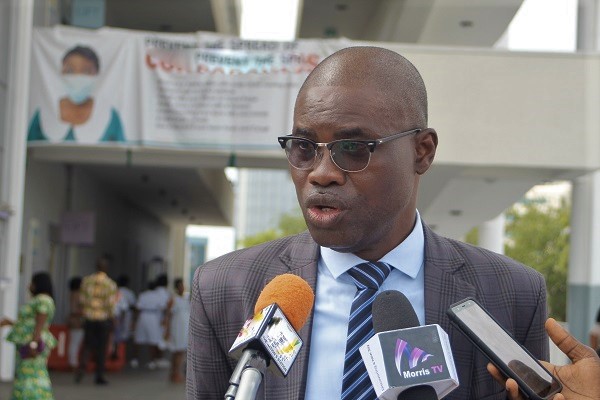Risk of cholera outbreak as GWCL MD laments pollution of Weija plant with faeces
Members of the public who depend on potable water from the Weija treatment plant risk cholera infections as huge volumes of faecal matter have been detected in the water source.
This was made known by the Managing Director (MD) of the Ghana Water Company Limited (GWCL), Dr. Clifford Braimah, who expressed worry about the current situation.
According to Dr. Braimah, aside from the contamination of water bodies from illegal mining activities, water bodies in the country are subjected to other pollutants.
He also said that the Weija river has unwanted deposits of pollutants that compromise the quality of the water, and these pollutants have become characteristic of most water bodies in the country.
“If you go to Weija, that is an urban setting of Accra. If you go to Weija and look at the quality of the raw water in Weija, you see it to be greenish. What it means is that organic material is being pushed into it. And one major organic material that is pushed in it is people’s faecal matter,” he lamented.
The GWCL boss made these comments while contributing to discussions about the contamination of water bodies and their effects on human lives and economies.
The issue of water contamination has been paramount in conversations over the last few weeks, following the re-arrest of galamsey Queen Aisha Huang.
Galamsey is a major cause of pollution of Ghana’s water bodies, with the GWCL hinting that it could lead to the importation of potable water for the country in the coming years.
Aisha and her accomplices were arrested on September 5 in Kumasi and currently facing prosecution for their illegal mining activities.
According to reports, Aisha Huang came to Ghana from a neighbouring country’s land border, Togo.
Upon her arrival, she also acquired a Ghana Card in February 2022 with a new name, Huang En.
She was subsequently charged together with three others who are currently facing two charges at an Accra Circuit Court.
They were slapped with two charges, namely: mining without a licence and engaging in the sale and purchase of minerals without a valid licence.
The accused persons were denied bail at the Circuit Court when they appeared for the second time on Wednesday, September 14, as they were remanded into police custody to reappear on Tuesday, September 27.
Touching on this development, Dr. Clifford Braimah advocated the involvement of the Water Resources Commission in the fight against illegal mining in Ghana.



